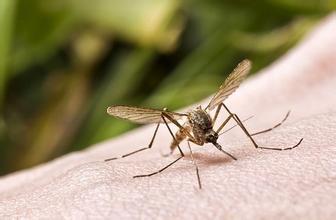(单词翻译:单击)
听力文本
This is Scientific American — 60-Second Science. I'm Christopher Intagliata.
Chances are, you've had the opportunity to study firsthand the swollen, itchy welt left by a mosquito bite. And now—scientists have too.
"Well, we haven't studied itching yet in our laboratory studies." Clive McKimmie, an immunologist at the University of Leeds, in England. "What we've shown is the inflammation associated with bites is not good for you as a host, and it gives a virus an advantage."
To understand why, let's back up. To mosquito spit. "Now I know it's a little disgusting to think about, but when a mosquito bites you, they're spitting out quite a bit of saliva into your skin." That saliva can contain viruses, like zika or chikungunya. And viruses—and the tissue damage from the bite—are a rallying cry for the immune system.

McKimmie and his colleagues studied that immune response in mice. And they found that when immune cells show up at the bite the viruses infect them, and turn those immune cells into factories for further virus replication.
"Your own immune system, which is meant to help your body defend itself against infection, seems to be inadvertently promoting an aspect of a virus infection."
Overall, the inflammation resulted in 10 times more virus in the mice, compared to being inoculated with the virus without a bite. The study is in the journal Immunity.
More viruses means a higher chance they'll infect your organs—and other mosquitoes too. So McKimmie says it might be worth testing a cheap anti-inflammatory—like a topical ibuprofen cream—to see if it cuts virus numbers. "You've got to remember that these infections tend to be present in parts of the world that are economically deprived. And so we can't come up with an expensive new medication, because it's unlikely to be appropriate for that situation."
The real beauty of this topical treatment approach, though—if it works—is its versatility: it zeroes in not on a specific disease, but that one thing they all have in common: the bite.
Thanks for listening Scientific American — 60-Second Science Science. I'm Christopher Intagliata.
参考译文
这里是科学美国人——60秒科学。我是克里斯托弗·因塔利亚塔。
很有可能,你会有机会研究有关肿胀的第一手资料——被蚊虫叮咬后留下的痒痕。现在,科学家们也有了这种机会。
“目前实验室研究中还没有研究过瘙痒。”英国利兹大学的免疫学家克利夫·麦基米说道。“我们已经证明,作为宿主,叮咬诱发的炎症有害于你的身体健康,它为病毒创造了优势。”
为了了解原因,我们回到蚊子的唾液这个问题上。“我知道现在思考这个有点儿恶心,不过蚊子在咬你时,它们会把相当多的唾液吐到你的皮肤上。”唾液中可能含有寨卡或奇昆古尼亚热病等病毒。而病毒以及叮咬造成的组织损伤对免疫系统而言是一个战斗口号。
麦基米和他的同事利用小白鼠研究了免疫反应。他们发现,免疫细胞会在蚊虫叮咬时出现,然后病毒就会感染这些免疫细胞,并把这些免疫细胞变成进一步进行病毒复制的工厂。
“你自身的免疫系统会帮助你保护你的身体免受感染,但似乎在不经意间促进了病毒感染的一个方面。”
一般来说,与被接种病毒、没有被叮咬的小白鼠相比,炎症导致的病毒要比其多十倍。这项研究发表在《免疫》杂志上。
病毒越多意味着你的器官被感染的机会就越大,其他蚊子也是这样。因此,麦基米表示,对局部布洛芬乳膏这种廉价抗炎药进行测试是非常值得的,测试的目的是看它能否减少病毒数量。“你要记住,这些感染往往出现在世界上经济贫困的地区。所以我们不能研制昂贵的新药物,因为这不太可能适应目前的情形。
如果起作用的话,这种局部治疗方法的真正美妙之处在于它的多功能性:它并不是针对某种特定疾病,而是针对疾病的一个共同点:叮咬。
谢谢大家收听科学美国人——60秒科学。我是克里斯托弗·因塔利亚塔。
译文为可可英语翻译,未经授权请勿转载!
重点讲解
重点讲解:
1. show up 出现;露面;
例句:Periodicity of nuclear properties began to show up.
原子核性质的周期性开始显示出来了。
2. turn into (使)变成;(使)成为;
例句:Oil can be turned into energy by burning it.
油经过燃烧可变为能源。
3. compared to 与…相比;和…比起来;
例句:The old can really does look dated compared to the new look.
相比新的外观,原外观真的显得很陈旧。
4. come up with 想出,提出(计划、想法等);
例句:You're the only one to come up with that answer.
你是唯一一个给我这样的答案的人。
5. zero in on 全神贯注于(问题或主题);
例句:They zeroed in on the suspicious man.
他们的注意力集中在那个可疑分子身上。


